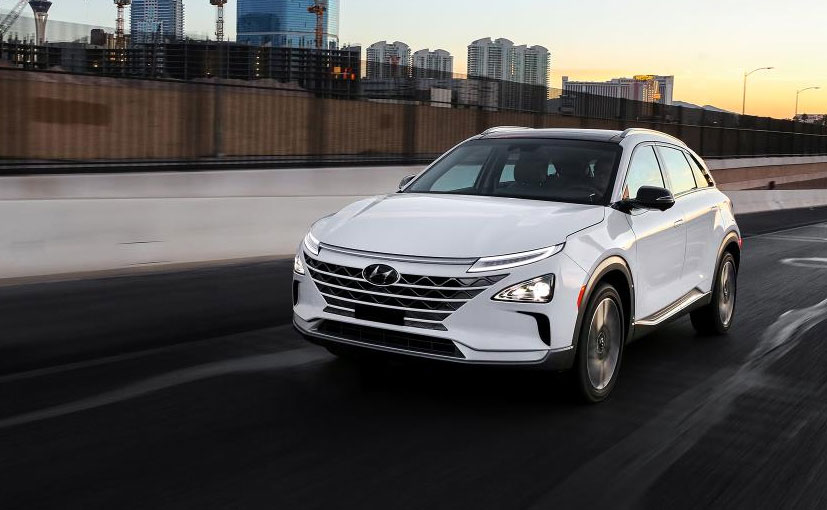
With governments imposing strict regulations to curb carbon emissions, more and more carmakers are shifting their focus to manufacture electric vehicles. Electric vehicles have already made their way to the Dubai car market where the they have been included in the taxi fleet and traffic patrol cars. However, many believe that it will be years before we begin to see mass adoption of electric vehicles and hence companies like Toyota, Honda and Hyundai have decided to launch fuel-cell vehicles as perfect substitutes for vehicles that are usually powered by gasoline and diesel.
2018 will see a number of fuel-cell cars being introduced in the market and Hyundai’s fuel cell-powered SUV will be the first amongst them. Earlier, Hyundai had showcased the fuel-cell SUV at the 2017 Geneva Auto Show and now the vehicle will make its debut in the upcoming 2018 Consumer Electronics Show. The model has been introduced as a replacement of the Tucson fuel cell vehicle and it is claimed that the SUV has better efficiency than its Japanese rivals.
Highly Efficient
The maximum power delivered to the fuel-cell SUV will be 136 ps or 100 kw. The vehicle was tested on European roads and the tests reveal that the vehicle can travel upto 500 miles on a single load of hydrogen. The miles covered by Hyundai’s fuel cell-SUV are greater than the miles covered by rival vehicles like Toyota Mirai and Honda Clarity Fuel Cell car. The vehicle offers better fuel efficiency with only 9.5 gm of hydrogen required to cover a distance of 1 km.
Taking on the challenges
As of now, a fuel-cell car is considered as a luxury that can be afforded by the rich because the vehicle is not only efficient than the usual gasoline cars but also require costly and spacious infrastructure to get refuelled. Currently, there are very few hydrogen-filling stations available and only a privileged few can actually afford to get their cars refuelled by high-grade machines.
However, Hyundai believes that the hydrogen fuel-cells have great potential as they can be suitably equipped in a self-driven car that requires power to support the complex electronics and on-board sensors. Moreover, a fuel-cell vehicle can be filled in just 10 minutes while an electric vehicle requires three hours to be charged completely with 240 Volts.
If the fuel-cell car is as luxurious as it is perceived then the vehicle will a greater demand in cash-rich markets like the UAE. In fact, Toyota has already begun to test the Mirai in Dubai. More specifically, it is the heat withstanding capability of a fuel-cell car that is being tested. So, it will take some before we see any mass adoption of fuel-cell car in Dubai.



